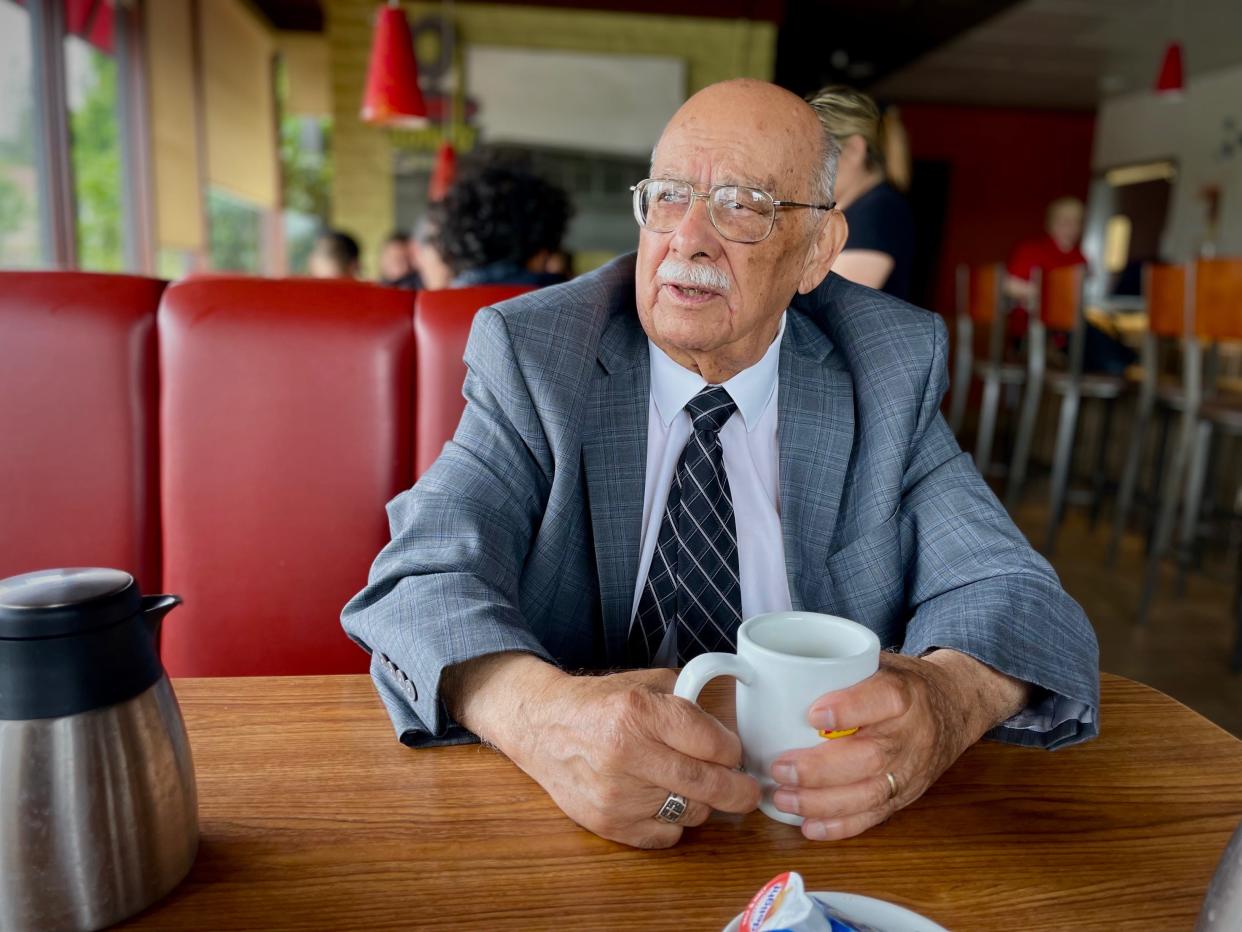'When you reach 90, it's a biggie:' Veteran county educator retires after 66 years

Joe Mendoza, 90, could have retired decades ago. But every year, for 66 years, the educator and administrator found a reason to come back.
But on June 30, the Ventura County native served his last day with the county office of education, retiring after 66 years as a teacher and administrator and nearly half a century running the county's migrant education program.
Mendoza has seen it all. He was born in La Colonia to agricultural workers in the years before the Latino students in the neighborhood even had a school to go to. As a teacher in the '50s and '60s, he helped lead unionization efforts and worked alongside fellow Chicano activists as part of the Association of Mexican American Educators. He moved to the county education office in 1970 to spearhead the county's then-new migrant education program, which he led for 45 years. In 2017, CSU Channel Islands recognized his six decades of work with an honorary doctorate.
More: CSUCI honors man who alters migrant kids' lives
The married father of three said his family is happy for his retirement, but still adjusting to having him home so often. "I think they're gonna be alright," he said.
We met Mendoza at a diner in Ventura on June 28 to talk about Ventura County history and schools. The veteran educator was spending his last days on vacation but, as he had for decades, couldn't help but don a suit.
What was life like growing up in La Colonia?
I grew up in the '30s where we were segregated. People forget that the railroad track in La Colonia separated us. Colonia in the '30s had no school, so we never had to worry about going to school. Ramona School wasn't built until the early 1940s. I was in one of the first classes that attended there.
I talk to young people about why we would just get up and go to work. We had no motivation to go even to high school, let alone university. We accepted the fact that we were going to go pick lemons or work in the sugar beet factory in Oxnard.
How did education change over your years as a teacher?
I started teaching in '57. Teaching was simple, just the three Rs. I don't know if I could teach now. Kids are just too smart.
I remember when they introduced television into the classroom. Teachers got all up tight: "What's the world coming to? Television's going to replace the teacher." Today, the kids are smarter because of technology. They know more; they do more.
In '70, I moved into administration (to run) the migrant education program. It had started in '68.
Tell me about the migrant education program.
We gave supplementary education to children of farmworkers. They would only stay for the season of the crops they were picking. The problem was they weren't in school long enough to learn anything. Sometimes we didn't know when they were going to leave. Back in the '70s, we had about 12,000 migrant students.
As you get older, you see the changes. The first thing that happened was a decline in (migrant student) enrollment. We dropped from 12,000 to 8,000 in the '90s. That was because of a lack of housing. It caused migrants not to move here because where are you gonna stay? They started going to Bakersfield, because there was lots of housing — and cheap.
What kept you going for so long?
The children and the parents. I count, as my friends, migrant families I've known for years. I'm working with the grandchildren of some former students. I can count lawyers, doctors, teachers up the wazoo (who I knew as students). That just inspires you and motivates you.
A couple years ago, two young men, former students, came into my office and asked me if I'd like to join them for a cup of coffee. They said, "We were in your sixth grade class, and because of you we both became teachers, and now we're retiring and we thought we'd come and just say thank you."
That's what's inspiring. That's why I stayed.
Did you think about staying on another year?
No. I'm 90. When you reach 90, it's a biggie. There's not much time left. You've got to step aside and let young people take over.
Isaiah Murtaugh covers education for the Ventura County Star in partnership with Report for America. Reach him at isaiah.murtaugh@vcstar.com or 805-437-0236 and follow him on Twitter @isaiahmurtaugh and @vcsschools. You can support this work with a tax-deductible donation to Report for America.
This article originally appeared on Ventura County Star: Q&A: Ventura County education veteran retires after 66 years

